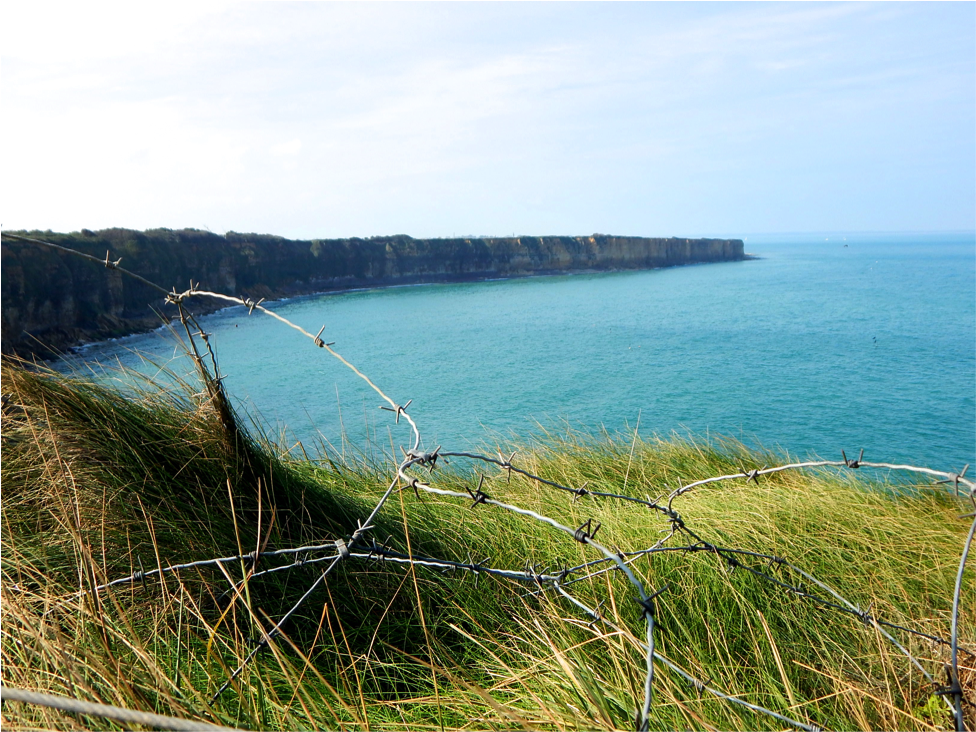On June 6, 1944, the Allied Forces of World War II began an invasion of Europe that would lay the foundation for a definitive defeat of Nazi Germany. In an operation that would come to be known as D-Day, 156,000 men landed on the shores of Normandy, France, knowing that they were more than likely going to their deaths. Caught in a mix of pressure and patriotism, pride and fear, boys of just 17 — boys who should have been kissing girls and studying for college entrance exams — met other boys in the sand and shot them.
I expected our day touring the D-Day sites to be difficult, and it was. I’ve always been loose with my tears; an extreme of any emotion, positive or negative, can typically make me cry without much trouble. But even as I walked through row upon row upon row of graves in the American cemetery, reading too many tombstones dedicated to “an honored comrade in arms, known but to God,” the crying never came. The cemetery felt endless – 172 acres of grass and marble and bones – and I went numb under the weight of it, this tiny fragment of the innumerable lives we have lost in war.
By the time we reached Omaha Beach, the bloodiest of the five invasion sites, the grey haziness of the morning had broken to blue sky. At our earlier visit to Utah Beach, we had found the shore nearly deserted, haunted by barbed wire fences that have never been taken down – but much to my surprise, Omaha Beach is still a Saturday treat for the people of Normandy. Just yards from the remains of German bunkers, kids were building castles in the reddish sand. A little ways down the coast, a golden retriever was bounding through the surf, feeding off the amusement of her owner. Here at the site of so much fear and hate, life was shaking its lovely head in laughter, defying death, going on.
Victory, real victory, wasn’t won in the securing of the D-Day beaches. It wasn’t won when Germany surrendered, and it certainly wasn’t won when the bombs fell on Hiroshima and Nagasaki. But it is won in every yellow blossom dusting the grass near Omaha Beach, in the giggle of every child playing on the shore, in every wag of the dog’s tail. It’s won whenever God calls new life out of the earth or love out of a human heart, and most of all, it was won when visitors at another cemetery found a tomb empty.
When the perishable puts on the imperishable, and the mortal puts on immortality, then shall come to pass the saying that is written: “Death is swallowed up in victory. O death, where is your victory? O death, where is your sting?”(1 Cor. 15:54-55)
